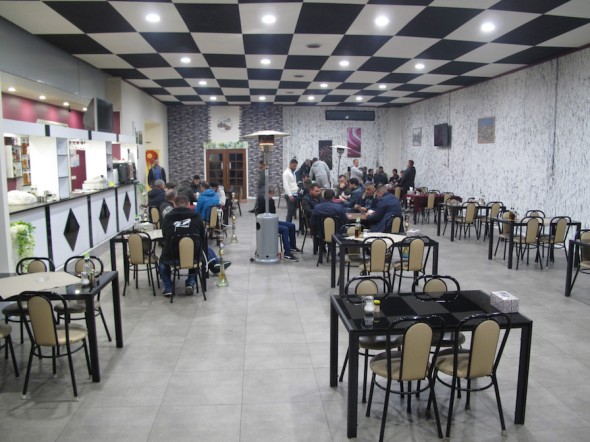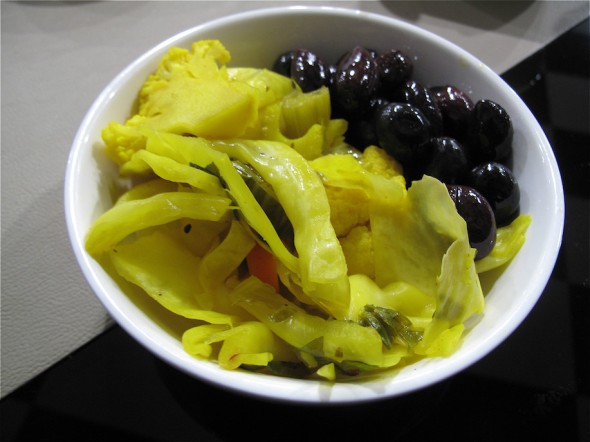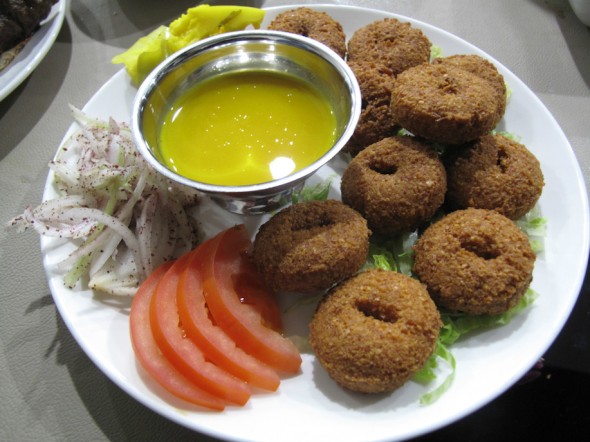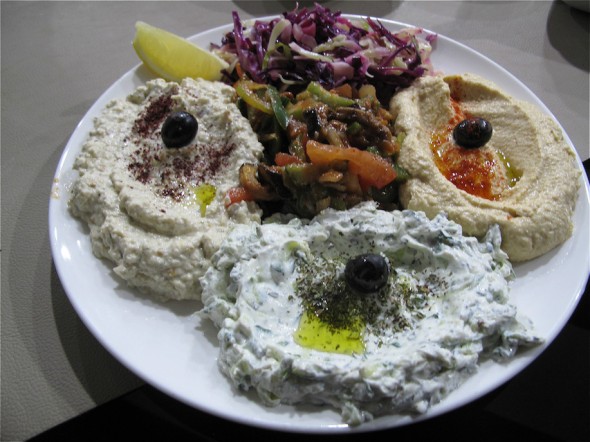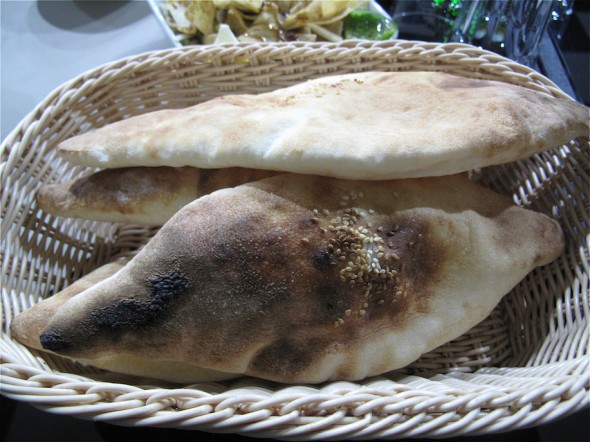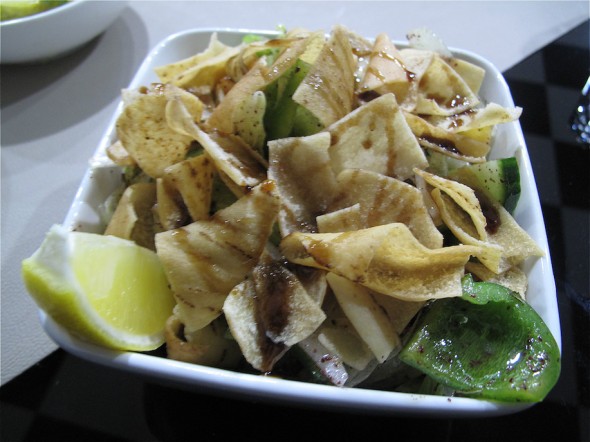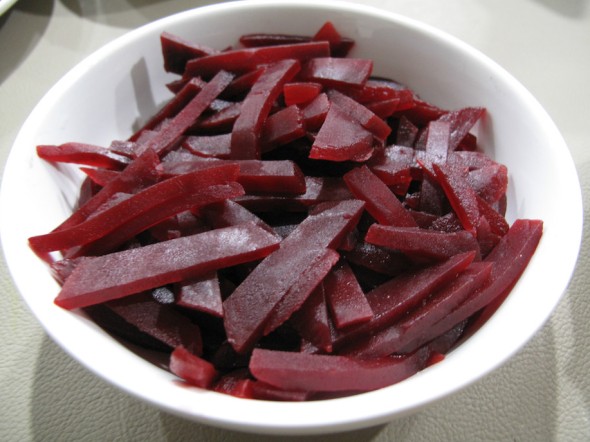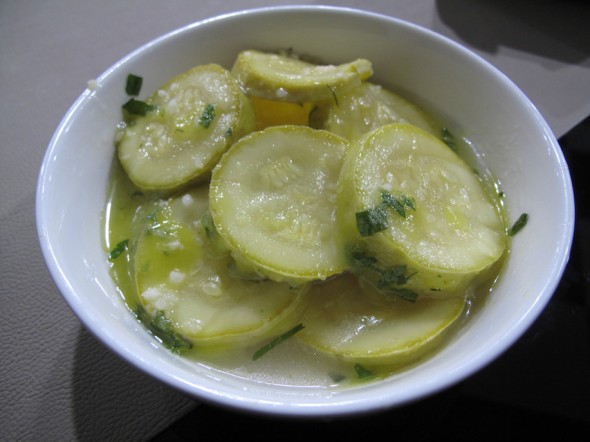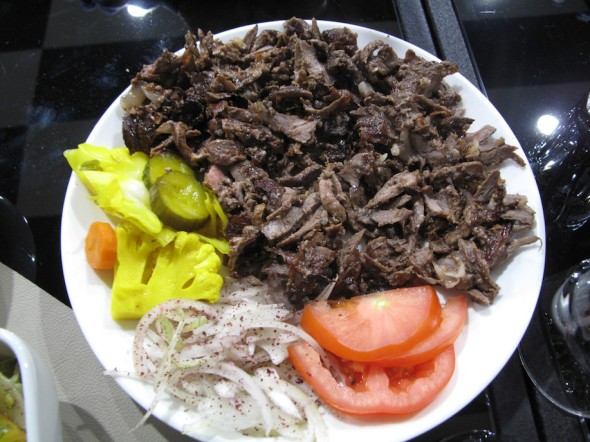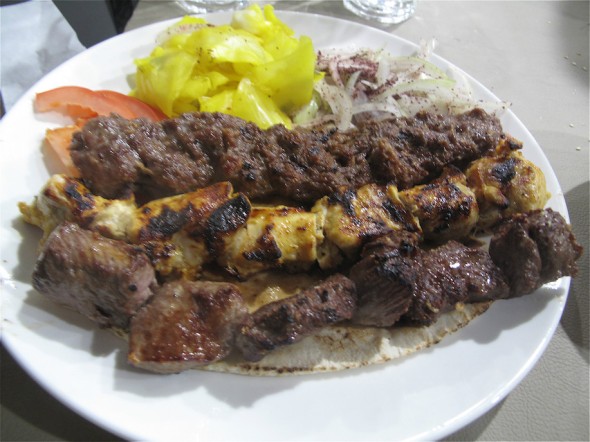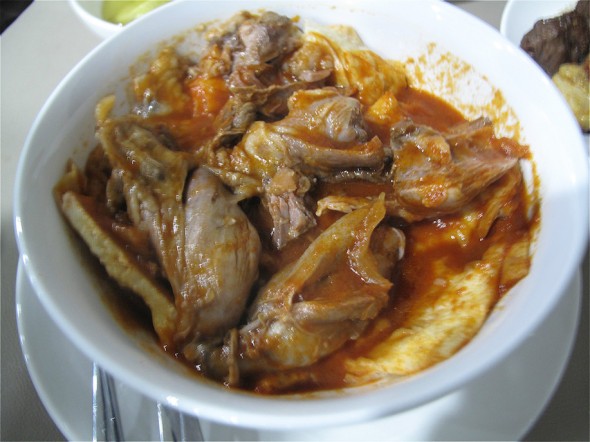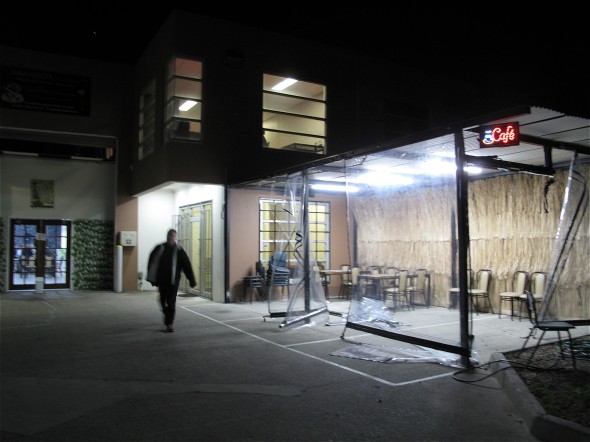Bakhdida Cafe and Restaurant, 42 Knight Avenue, Sunshine North. Phone: 0403 440 174
Prowling the back streets of Sunshine North after dark is a weird feeling – creepy even.
No one around, the panelbeaters and all the other businesses hereabouts closed, little by way of street lighting.
But as we arrive at the block on which Bakhdida lives, parking is at a premium.
Entering the restaurant – the main room is really more of a hall – we discover the reason for that: A couple of dozen guests happily playing cards and the like.
Yes, this is an eatery-cum-social club of the kind found all over the west in a dizzying array of cultural affiliations.
But don’t let that put you off.
Actually, let me re-phrase that: DEFINITELY don’t let that put you off, because you REALLY, REALLY do want to visit and enjoy Bakhdida.
Here you’ll be served wonderful Iraqi food.
Much of the long and extremely affordable menu is familiar in the Middle Eastern way, though there are a few points of difference along the journey.
Proprietor Abraham Pitros and his crew are really on the ball, with our many dishes arriving looking gorgeous and after what seemed like hardly any time at all.
The restaurant is named after the northern Iraqi town from whence Abraham originated.
Pickles are served with several of our other dishes as garnishes, but it’s a good thing we order a dedicated serve of them ($5) with olives – because we love them a lot and eat of them heartily.
Cabbage, celery, some carrot and – best of all – many cauliflower florets have a turmeric hue, are delicious and are made with love by Abraham’s mum.
A good whack of turmeric is also at play in the dipping concoction that comes with our falafel ($15).
The falafel – in the shape of small donuts and looking a bit like vada – are golden outside and in, very plain in the seasoning department and very good.
Mixed dips ($10) – eggplant, gagic, hommus – are every bit as excellent as you’d expect and accompanied by a sort-of ratatouille and cabbage salad.
We enjoy them with good house-made Iraqi bread – hollow in the middle like the Lebanese variation with which we’re familiar, but a bit thicker.
Under the roof of pita chips is a top-notch rendition of fatoosh ($5).
Sliced beetroot ($5) is OK, but is so plain it gets a bit lost amid all the other zingy flavours we are loving.
Just like all the other guests this night, we get to try (at no charge) this un-named kitchen trial dish.
It’s made of large yellow cucumber slices and come across as a cross between a pickle and a salad.
It, too, is great.
Lamb shawerma ($16) is chewy, a little crispy and quite salty – just as we like it!
Mixed skewers ($16) are succulent, awesome – and seemingly unseasoned in any way.
But that’s fine, actually, as there’s plenty of hyped-up flavour action going on elsewhere on our table.
Saving the best until last?
Pretty much!
In meat tashreeb ($16), the cooking juices soak into the bread, upon which resides a generous serving of lamb shank meat – gamey, tender, superb and plentiful enough for all five of us to have a good taste.
Will we return to Bakhdida?
Yes.
Again and again and again …
It is open for breakfast, lunch and dinner seven days a week.
Thanks to Julian, Nat, Christine and Bennie for making up the evening’s Team CTS.
